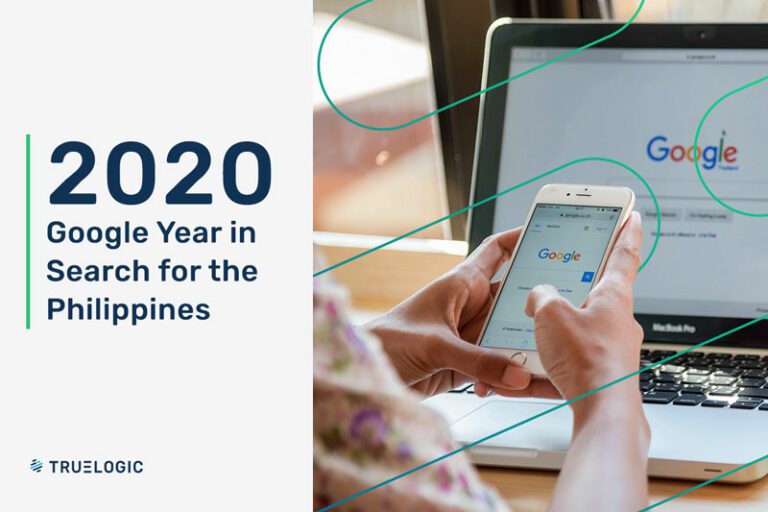What is SEO and How it Works

Increasing traffic to a website is one of the primary goals of an online business. The more visible you are, the more customers will notice you, and the more sales and revenue you’ll get. SEO is the best way to do all those things and this is one of the major reasons SEO services are increasing in demand right now.
So what is SEO?
What is SEO?
SEO or search engine optimization is the process of priming your website so that it is understood and prioritized by Google. It might seem like a technical term (and it is) but it’s easy to understand once you get the basics down. Whether you’re running an established business, an enterprise, or a startup, better visibility on search results is crucial to get more attention from people and attract prospective clients to your business.
Why is SEO Important? What Are its Goals?
Businesses need SEO to prepare their website so that it does its job and performs at its best every day. SEO is important because it increases online visibility, drives site traffic, maximizes user engagement which will then result in an increase in sales and revenue.
Millions of websites exist today and more are created every day because the demand for information and online services grows as the user base grows. In 2019 alone. The Philippines ranked first in the world internet usage index and as of January 2020, internet users in the country grew to 73 million, jumping from 69.6 million in 2018. The market is shifting online and it’s evident now more than ever before. It’s now your call to adapt to the changes in user behavior and optimize your assets online.
Understanding How SEO Works
Millions of people are now going online to look for information, for education, to connect with people, or to share and pass time. There are many reasons why a user would surf the web, but one thing stays the same and like Google said: Everything starts with a search.
There are two factors that are involved in SEO. First is the search engine (we’ll be using Google in this case) and second, you have the website.
How do search engines work?
Understanding how search engines work is important because once you know how the system operates then you can figure out how to work with it.
Google owns 95.79 percent of search engine market share in the Philippines alone, followed by Bing with 2.08 percent and Yahoo at 1.7 percent.
Think of Google as a library of webpages. It has stored all the pages online on its server. It does that by crawling the web for every single URL. The Google crawler or Googlebot then scans every single webpage at high speed. Then it is indexed or stored so that the page is added into Google search.
Everything starts with a search
So when a user types in a query, Google pulls out the results from its indexed pages. Which brings us to another question: How can a website appear first on search engine results? How can you make sure that Google recommends your website first?
Google uses a list of ranking factors to determine which website to prioritize and which content to recommend. You can read all about it in Google’s Webmaster Guidelines. However here are three ranking factors that you should keep in mind: Links, content and Google BERT, which will be explained further below.
Note that different search engines have different algorithms, thus, they use different ranking factors to process results. This is the reason why results differ when you go and search on Google or Yahoo.
Optimizing your website for search engines
Now that you have an understanding of how search engines work as well as Google’s ranking factors, it’s time to prime your website so that it’s understood by both Google and the user in the best way possible. Although it’s important to have a beautiful web design, it takes more than beauty to get noticed by search engines. Google ranks a website based on hundreds of its ranking factors, but there are three that you should prioritize.
Three important ranking factors:
- Links. This is essentially one website linking to another website. Think of it as Google reading the links as votes for your website and how relevant it is. Of course, not all websites are weighed the same by Google. For example, CNN’s website outweighs a random blogger’s website. Make sure to get links from reputable sites as the more quality links you have, the higher you’ll rank on the search results. The term for a connecting link from another website to your page is called a backlink.
- Content. High-quality content is essential to boost up your digital marketing strategy as well as elevate the value of your website. Content remains to be the fuel that gets your engine running. In order for any digital marketing campaign to work, the content strategy must be formulated and planned in a way that it’s aligned with the audience and your goal. This includes optimizing it so that it’s both relevant to the users and to search engines as well.
- BERT. In 2015, Google released RankBrain, a machine learning algorithm that prioritizes SEO and high-quality content optimization. Machine learning is now used to understand or assume what a user really means when they conduct a Google search. After RankBrain, Google released ‘Bidirectional Encoder Representations from Transformers’ or BERT. Google stated that BERT has the capacity of near-human understanding and can help computers understand language closer to how humans do. The aim of BERT is to understand human intentions better when they search, so it’s important to make sure that your website is understood by BERT so that it can match it to the search made by the users.
Why is it important to follow these standards? They’re there to make sure that a website is performing at its best. You should ace these three to rank higher on Google search results. It’s advisable to begin learning how to do an SEO audit as it will deliver a report of your website’s overall health and performance.
Three Areas of SEO
There are three main areas of SEO that correspond to each search engine process, or how search engines conduct their ranking. These are Technical SEO, On-page SEO and Off-page SEO. When optimizing your pages for SEO, you should check to always analyze these three areas first.
What is Technical SEO
SEO many already sound technical all by itself, but there is a more technical aspect to SEO and optimizing your website. It involves fixing the technical aspects of your website so that it’s faster and easier to crawl and index.
Site Speed
A website’s loading speed is a crucial factor in ranking your website. Not only does Google need your pages to load fast, but people would also want it as well. There’s a high tendency that people will leave a website if it loads 3 seconds later.
- 53 percent of mobile site visitors exit a page if it loads longer than 3 seconds.
- 32 percent increase in bounce rate is found if a page loads from 1 to 3 seconds.
- 106 percent increase in the probability of bounce rate if the website loads more than 6 seconds.
- 123 percent increase in the probability of bounce rate if the website loads more than 10 seconds.
- 87 percent abandonment rate when load time is delayed by 2-seconds during a transaction.
– marketingdive
Google knows that a slow website doesn’t offer a great user experience and will be less likely to recommend it, resulting in lower rankings on search results. As Google‘s own John Mueller stated, ‘Speed is definitely a ranking factor’.
To check whether your website is fast enough for both users and Google, you can use PageSpeed Insights to check website performance on all devices.
Easy for search engines to crawl a web page
You want search engines to be able to crawl and index your site and all its pages as fast as possible. You can do this best by guiding Googlebots in crawling your content. This way you can tell them which pages to crawl or create a signal where you don’t want them to go.
You can give crawlers direction using the robots.txt code. A robot.txt file tells Googlebots which pages they can or can’t crawl. This prevents overloading your site with requests. However, be careful because, with just a tiny mistake, you might accidentally prevent a bot from crawling or reading important parts of your website. There are always SEO experts you can work with to help avoid these risks.
No duplicate content
Search engines will likely get confused if you have multiple pages on your site with the same content. In the case of Google, it wouldn’t know which one to rank, therefore ranking all pages lower for having similar content. There are tools like Yoast which can prevent this from happening. For example, applying a canonical URL will tell the search engine which results to prioritize and show to users.
Dead links should be gone
Deadlinks are landing pages that don’t exist anymore. If a visitor lands on a page and encounters a 404 Error, it breaks the user experience. Search engines catch on to this too. To avoid deadlinks, you should redirect a page when you move it or decide to delete it. There are online tools that check for deadlinks so make sure you do frequent checks as websites, especially growing ones, tend to overlook them.
Secure
If you have technical SEO done on a website, it should be optimized for security. It’s a requirement to make sure that your website is safe for users and that it guarantees their privacy. One of the most important things is to make sure you’re implementing HTTPS on your site as this ensures that a user’s credentials and privacy are protected. You’ll be needing an SSL certificate in order to implement HTTPS.
HTTPS prevents data interception between the website and the web browser a visitor uses. Security is important to Google and it makes sure that HTTPS websites rank higher.
What is On-Page SEO?
On-page SEO is the method of fixing and improving every single one of your webpages and all the internal areas of your website so that they’re optimized to be crawled and showed on the results pages. This involves optimizing titles, meta descriptions, texts, copies, images, videos, and all other content found on your website.
What is Off-Page SEO?
Off-page SEO involves all activities happening outside of your website. These are all external aspects of your website that affect web ranking and search visibility. An example of an off-page activity would be Link Building.
Link building promotes your website by linking to high-authority websites so that they direct back to yours. As mentioned above, links are an important ranking factor in SEO and should be a priority for an effective SEO campaign.
Understanding SEO Writing and Content
SEO writing helps websites become more visible in search engines. The content is based on keywords that are relevant to Google. It involves being creative and strategic in using targeted keywords in a way that not only search engines find appealing but also brings value to readers.
Writing for SEO is a specialized skill which involves keyword research, ideation, and strategizing, if you find that you can’t do the wiring, there are SEO writers and copywriters who specialize in SEO. When outsourcing content marketing services from an SEO provider they will provide you with three important skills that every SEO content writer should have: a solid understanding of SEO, quality writing skills, and ability to meet deadlines.
Best SEO Tools to Start With
Tools are crucial in executing, implementing, monitoring and analyzing your SEO activities. It will boost your productivity, help you work quicker and more accurately. SEO is a growing necessity, and because of that more and more SEO tools are being developed every day so much so that you’ll find most to be almost identical. Here are a few must-have SEO tools that will help you help your SEO process:
Ahrefs
A favorite of both beginners and SEO experts, this tool has an array of helpful features that will aid your SEO campaign. It has the keyword explorer, site explorer, site audit, content explorer, rank tracker, and SEO toolbar. Ahrefs delivers data that will equip you in forming your SEO strategy.
MOZ
An SEO software company that boasts an all-in-one platform for all the SEO tools you’ll need to boost your marketing efforts. It has a powerful interface that provides you with accurate data from the get-go. If you need to do site audits, keyword research, and backlink analysis among others, then this is the tool to go for.
Google Keyword Planner
Keywords are a big part of SEO and the basis of your SEO strategy. Google has its own keyword planner to provide you with keywords or keyphrases relevant to your website. Google’s keyword planner can be used for both paid ads and SEO as it provides insights and details on how words are searched which offers you many options and ideas along the way.
Ubersuggest
Ubersuggest is a web-based tool that’s used for looking up keywords suggestions. It offers details like volume, keyword trends, and competition analysis.
Yoast SEO
Yoast SEO is a WordPress plugin that assists your on-page efforts. This tool allows you to do on-page fixes such as SEO analysis, metadata optimization, and schema implementation. It’s a helpful companion when doing on-page SEO, technical SEO, and content optimization.
SEMRush
SemRush is the tool to go for when you need to do a quick check on website performance. It delivers detailed insights and data about how your website is doing online. You get traffic information, keywords, backlinks, and more. The data it provides will be helpful in pointing the weak links in your SEO strategy.
Majestic SEO
When it comes to backlinks and gathering backlink data then Majestic SEO is the tool to go for. It’s reliable and trusted by many SEO experts. The tool dives into websites to identify link opportunities then it determines the quality of that site’s backlinks too. It also comes as a browser plugin so you can do backlink analysis on any website on the fly.
Google Search Console
Along the cycle of your SEO campaign, you will need to constantly monitor its performance. This will allow you to modify and adjust your strategy so that it reaches optimum performance. Monitoring tools are needed to accomplish this task.
Google Search Console is a favorite of both SEO experts and seasoned digital marketers. This is a free tool that shows you a website’s performance. Beyond that, it makes you understand how your website is viewed by Google on search results.
You will have the data on all key metrics that you need to track a site’s performance. Google Search Console’s method of reporting is very detailed and can be integrated into other tools such as Google Data Studio if you want a more insightful and complete report.
Are You Ready To Be Found?
People will always be looking for your business. Almost everyone prefers to do tasks and day-to-day activities in the comforts of their own homes nowadays. This means that the online market is where people will try to look for you. As the decision-maker, it’s up to you and eventually the conversion rate optimization services you utilize to make it easier for them to find your business.
Adapt to the change and secure your spot at the top. SEO is a huge part of your internet marketing efforts and now is always the right time to start. Keep in mind that although SEO is a very effective strategy if you employ white hat tactics and SEO best practices — it’s not magic. Its effectiveness runs for a very long time and it will save you money, but it takes time, effort, and the right strategy to work. If you’re not willing to see results after a month or more, then SEO isn’t the strategy for you. The reason for the duration is because your website needs to be set up and primed for SEO. After that, you will be seeing results that will help you get the right traffic and help increase your bottom line.
What many people have yet to understand is that as long as search engines exist and for as long as people use Google in their daily activities, SEO will continue to be relevant. The most proactive thing to do is to start now and ensure that you will see the fruits of what you planted today, to stay on top tomorrow. If you need any assistance on how to properly execute your SEO campaign or how to make it work with other digital marketing services, feel free to reach out to us at any time.









